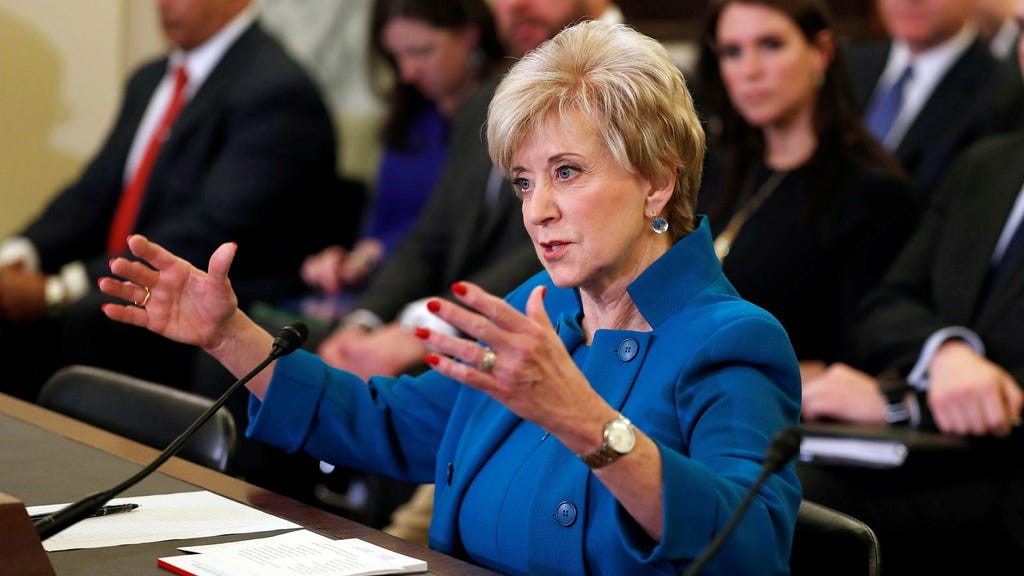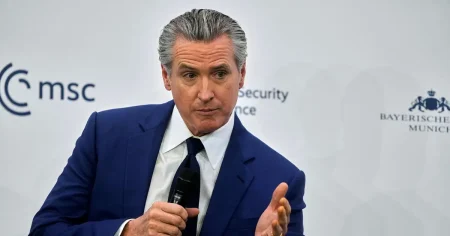Donald Trump’s proposed dismantling of the Department of Education, a cornerstone of the American social fabric since its inception in 1980, represents a significant shift in the nation’s approach to education. This bold move, promised during his campaign, aims to return control of education to state and local governments, arguing that a centralized federal bureaucracy stifles innovation and responsiveness to the diverse needs of students across the country. Supporters of this dismantling argue that the Department of Education has become bloated and ineffective, burdened by bureaucratic red tape and failing to demonstrably improve student outcomes. They point to persistently low test scores, achievement gaps, and the rising cost of education as evidence of the Department’s failures. Decentralization, they argue, would allow for greater flexibility and customization of educational programs tailored to specific community needs, fostering competition and ultimately leading to higher quality education. Furthermore, the return of control to local entities would empower parents and communities to have a more direct and impactful voice in shaping their children’s education.
However, the proposed dismantling also faces strong opposition from those who believe a centralized federal role is crucial for ensuring equity and access to quality education for all students, regardless of their socioeconomic background or geographic location. They argue that the Department of Education plays a vital role in setting national standards, promoting best practices, and ensuring equitable distribution of resources, particularly to underserved communities. Dismantling the Department, critics contend, would exacerbate existing inequalities, creating a patchwork system where educational opportunities vary drastically depending on the wealth and priorities of individual states and localities. They point to the Department’s role in enforcing civil rights laws in education, protecting students with disabilities, and providing funding for crucial programs like early childhood education and student financial aid as essential functions that would be jeopardized by its elimination. Furthermore, they express concerns that a decentralized system would lead to a decline in overall educational quality, particularly in under-resourced areas, and hinder the nation’s ability to compete globally.
Adding another layer of complexity to this already contentious issue is Trump’s appointment of Linda McMahon, former CEO of World Wrestling Entertainment (WWE), to potentially oversee the dismantling process. McMahon’s background in the entertainment industry, far removed from the traditional realm of education policy, has raised eyebrows and fueled both fervent support and sharp criticism. Supporters point to her business acumen and experience managing a large and complex organization as qualifications for the task. They argue that her outsider status brings a fresh perspective, unburdened by the traditional constraints of educational bureaucracy, which could be beneficial in streamlining operations and finding innovative solutions. Moreover, her experience in marketing and branding could be valuable in promoting educational initiatives and engaging the public in the reform process.
Critics, on the other hand, express concerns about McMahon’s lack of experience in education and her perceived alignment with Trump’s controversial education agenda. They question her understanding of the complexities of educational policy and her ability to effectively address the multifaceted challenges facing American schools. Her background in professional wrestling, a world often characterized by theatrics and scripted narratives, has led some to question her suitability for a role that demands serious policy expertise and a deep understanding of educational pedagogy. Furthermore, her past political donations and advocacy for policies that favor privatization and school choice raise concerns about her commitment to public education and her potential to prioritize corporate interests over the needs of students.
The potential consequences of dismantling the Department of Education are far-reaching and multifaceted, impacting everything from curriculum development and teacher training to student assessment and school funding. Without a centralized body to oversee these crucial aspects of education, there is a risk of fragmentation and inconsistency across states, potentially leading to disparities in educational quality and access. The impact on disadvantaged students, in particular, is a major concern, as they often rely on federal programs and protections to ensure equitable opportunities. Furthermore, the dismantling could have significant implications for the nation’s workforce, potentially hindering the development of a skilled and competitive labor force. The long-term economic ramifications of a fragmented and potentially unequal education system could be substantial, impacting innovation, productivity, and overall national competitiveness.
Ultimately, the decision of whether to dismantle the Department of Education represents a fundamental choice about the role of the federal government in education and the future direction of American schooling. It is a decision with profound implications for generations to come, impacting not only the quality of education received by individual students but also the nation’s social and economic well-being. The debate surrounding this issue highlights deeply held beliefs about the purpose of education, the balance of power between federal and local governments, and the best way to ensure that all students have the opportunity to reach their full potential. The choice to dismantle or maintain the Department of Education is a complex one, with passionate arguments on both sides, and its ramifications will be felt for decades to come.














